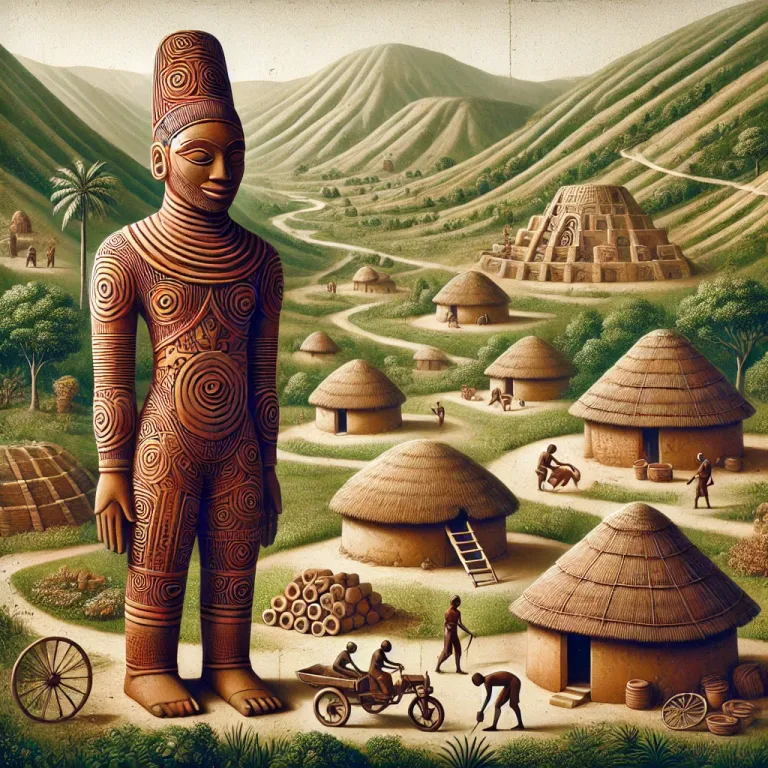
Ancient Nigeria: The Cradle of Civilization
Nigeria's history dates back thousands of years, with evidence of human life in the region as far back as 9000 BC. The Nok culture, one of the earliest known civilizations in Nigeria, flourished around 1000 BC in the central plateau area. The Nok people were skilled iron workers, and their terracotta sculptures are some of the oldest known in Africa. These early societies were advanced in metallurgy and agriculture, laying the groundwork for the complex kingdoms and empires that would follow.
I'll now generate an image representing an ancient Nok terracotta sculpture and the early settlements of Nigeria.
The Rise of Empires: Kanem-Bornu and Oyo
By the 9th century AD, Nigeria was home to some of the most powerful empires in Africa. The Kanem-Bornu Empire, located in the northeastern region, became a dominant force through trade and conquest. To the west, the Oyo Empire arose in the 15th century, expanding its influence through military prowess and a strong centralized government. These empires were pivotal in shaping the political and cultural landscape of Nigeria, with advanced trade routes stretching across the Sahara Desert.
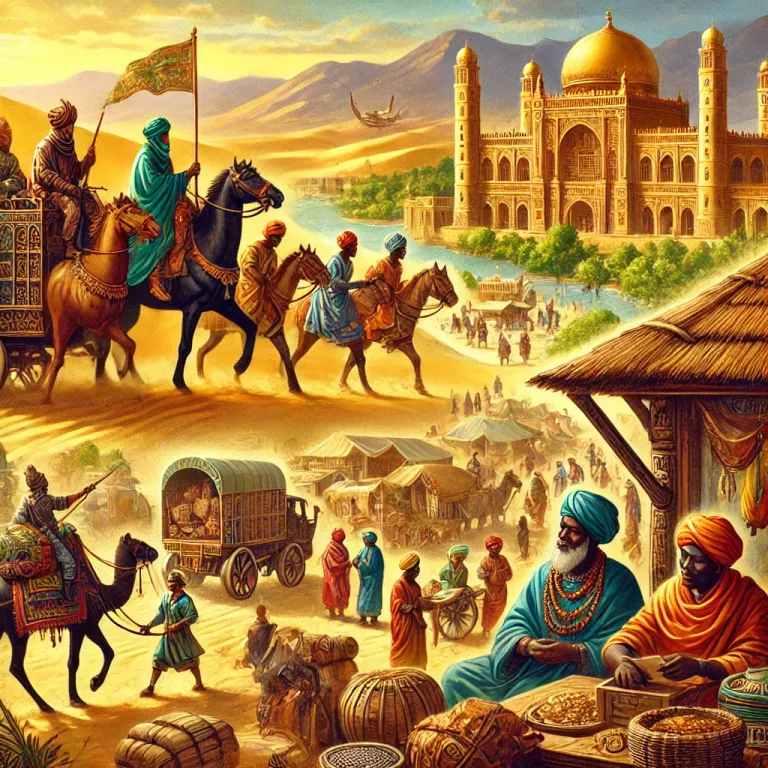
Colonial Nigeria: The Era of British Rule
In the late 19th century, the British Empire began expanding its influence in Nigeria, consolidating various kingdoms and territories under colonial rule. By 1914, the Northern and Southern Protectorates, along with the Lagos Colony, were merged to form modern Nigeria. This period was marked by the exploitation of Nigeria’s resources and the imposition of British administrative systems, drastically changing the social and political structure of the country.
Nigeria’s Struggle for Independence
The mid-20th century saw the rise of Nigerian nationalism, as various leaders began to push for self-governance and the end of British colonial rule. Figures like Nnamdi Azikiwe, Obafemi Awolowo, and Ahmadu Bello
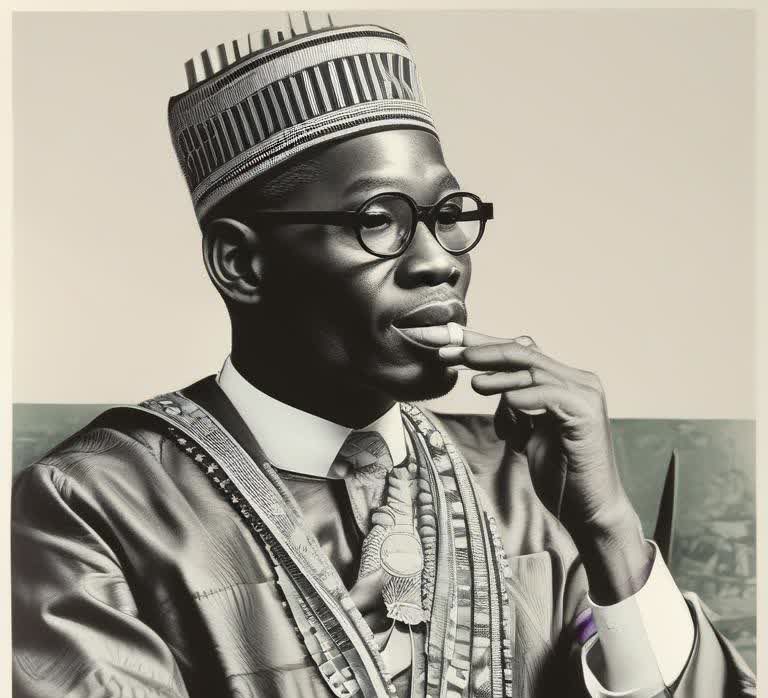
became prominent voices advocating for Nigeria’s independence. Through peaceful negotiations and political maneuvering, Nigeria finally gained independence from Britain on October 1, 1960.
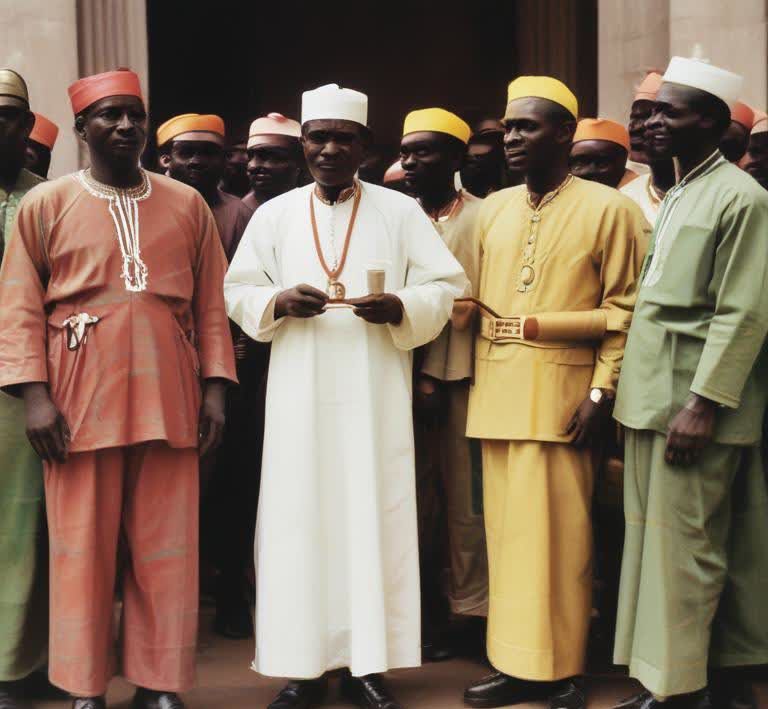
The period following independence was one of hope, as the new nation sought to unify its diverse ethnic groups and chart its own course on the global stage.
The Nigerian Civil War and Military Rule
Unfortunately, the optimism of independence was short-lived.
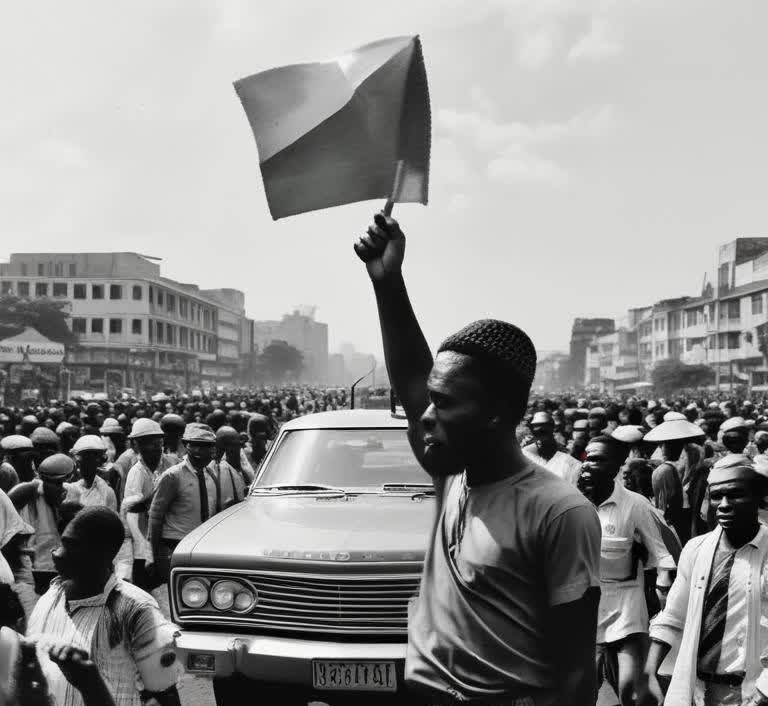
By 1967, Nigeria was plunged into a civil war, also known as the Biafran War, after the southeastern region attempted to secede and form the Republic of Biafra. The war, which lasted until 1970, was one of the darkest chapters in Nigeria’s history, resulting in massive loss of life and widespread suffering.
After the war, Nigeria experienced a series of military coups and counter-coups, with military rule dominating the country for much of the 1970s and 1980s. Despite the instability, this period saw significant growth in the oil industry, which became Nigeria’s primary source of income and a critical factor in its economy.
The Return to Democracy and Modern Nigeria
In 1999, after decades of military rule, Nigeria returned to civilian government under President Olusegun Obasanjo.
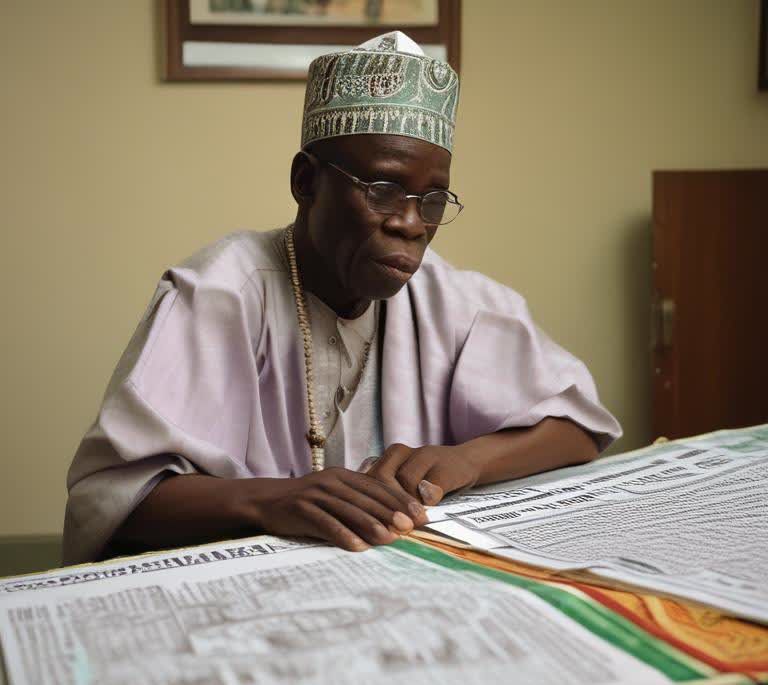
Since then, Nigeria has experienced steady growth in democracy, though challenges such as corruption, ethnic tensions, and terrorism have continued to affect the nation's development. Today, Nigeria is Africa’s most populous country and has the largest economy on the continent, driven by its oil wealth, vibrant culture, and diverse population.
Nigeria’s history is a tapestry of triumphs and challenges, shaping it into a nation rich in heritage and resilience.
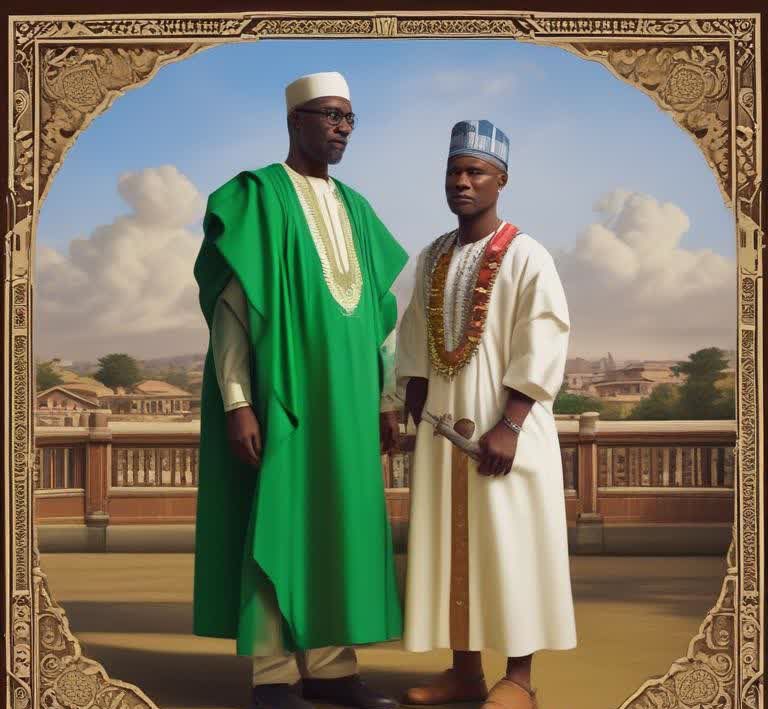
As Nigeria continues to grow and evolve, its past serves as a reminder of the strength and perseverance of its people.